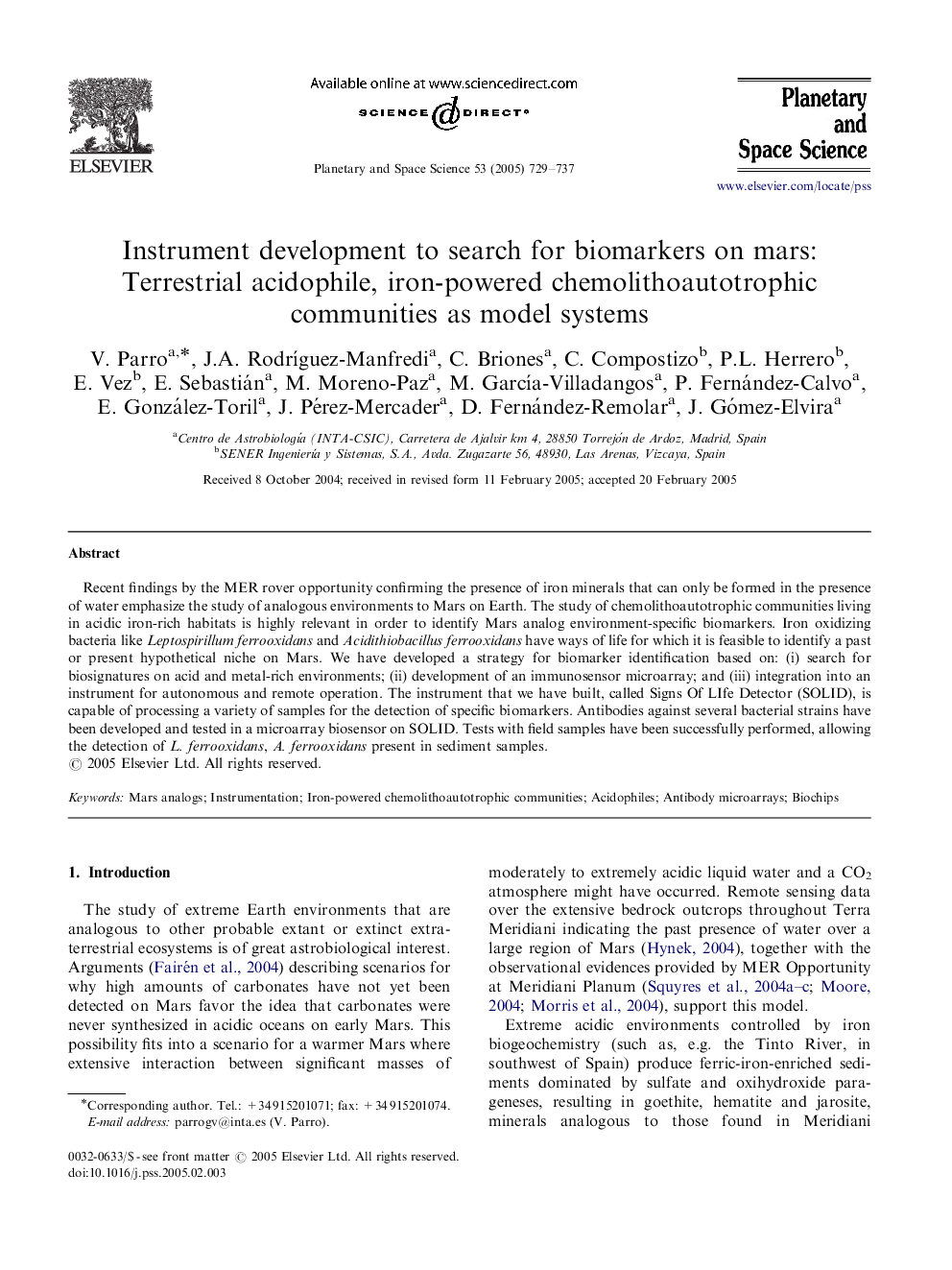| Article ID | Journal | Published Year | Pages | File Type |
|---|---|---|---|---|
| 10705351 | Planetary and Space Science | 2005 | 9 Pages |
Abstract
Recent findings by the MER rover opportunity confirming the presence of iron minerals that can only be formed in the presence of water emphasize the study of analogous environments to Mars on Earth. The study of chemolithoautotrophic communities living in acidic iron-rich habitats is highly relevant in order to identify Mars analog environment-specific biomarkers. Iron oxidizing bacteria like Leptospirillum ferrooxidans and Acidithiobacillus ferrooxidans have ways of life for which it is feasible to identify a past or present hypothetical niche on Mars. We have developed a strategy for biomarker identification based on: (i) search for biosignatures on acid and metal-rich environments; (ii) development of an immunosensor microarray; and (iii) integration into an instrument for autonomous and remote operation. The instrument that we have built, called Signs Of LIfe Detector (SOLID), is capable of processing a variety of samples for the detection of specific biomarkers. Antibodies against several bacterial strains have been developed and tested in a microarray biosensor on SOLID. Tests with field samples have been successfully performed, allowing the detection of L. ferrooxidans, A. ferrooxidans present in sediment samples.
Related Topics
Physical Sciences and Engineering
Earth and Planetary Sciences
Geophysics
Authors
V. Parro, J.A. RodrÃguez-Manfredi, C. Briones, C. Compostizo, P.L. Herrero, E. Vez, E. Sebastián, M. Moreno-Paz, M. GarcÃa-Villadangos, P. Fernández-Calvo, E. González-Toril, J. Pérez-Mercader, D. Fernández-Remolar, J. Gómez-Elvira,
